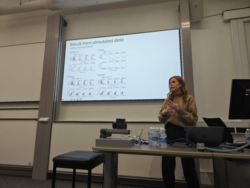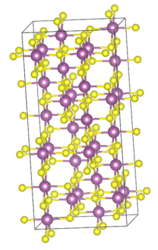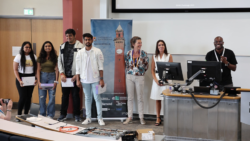We were very pleased to hear some familiar names mentioned in the recent ‘Awards for Game-Changing Impact‘. We would like to congratulate all the award winners but in this blog post, we are going to focus on those winners who make use of BEAR services to enable their research. The various BEAR services provided by … Continue reading “BEAR users feature in awards for game-changing impact”
Category: High Performance Computing
Investigating the brain with BEAR
In this case study, we hear from Brandon Ingram (based at the School of Psychology), who has been utilising BEAR to deepen their understanding of the mechanisms our brains employ to interpret visual stimuli. My research focuses on integrating electroencephalography (EEG) and functional magnetic resonance imaging (fMRI) to gain a more comprehensive understanding of how … Continue reading “Investigating the brain with BEAR”
Using computational and laboratory research to unravel genome plasticity in plants
In this case study we hear from Katie Jeynes-Cupper, a PhD student in Biosciences, who has been using BlueBEAR to unravel genome plasticity in plants. She was the winner of the best presentation at our recent BEAR Conference 2024. From food security to biofuel production, the demand for plant-derived products is growing exponentially, in parallel … Continue reading “Using computational and laboratory research to unravel genome plasticity in plants”
Using BEAR to characterise novel materials for renewable energy applications
In this case study we hear from Philippa Cox, a PhD student in Chemistry, who has been using BlueBEAR to characterise novel materials for renewable energy applications. I am a first year PhD student in the Scanlon Materials Theory Group based at the University of Birmingham. My research centres around using computational methods to analyse … Continue reading “Using BEAR to characterise novel materials for renewable energy applications”
IT Needs of Active Research Survey Progress – 18 months on
Back in the spring of 2022, the Pro-Vice Chancellor for Research’s ‘IT Needs of Active Research Survey’ was released, and four months later we provided summary results and actions that would be taken in response. The 2024 survey has just gone live (19th February), and we wanted to update you on the progress made. … Continue reading “IT Needs of Active Research Survey Progress – 18 months on”
HPC Wire Award 2023 winners!
We are excited to announce that researchers who use our advanced computing facilities have been recognised as award winners in the HPCwire 2023 awards! Advanced Research Computing is very proud to provide the BEAR computing facilities to support life changing research at the University, which has again been internationally recognised in these highly competitive, global … Continue reading “HPC Wire Award 2023 winners!”
Bear On Tour (Professor Andrew Morris)
Our next researcher in the #BearonTour series is Andrew Morris, Professor of Computational Physics in the School of Metallurgy and Materials. His research group uses and develops quantum mechanical techniques for predicting the structure and properties of new materials using a computer. Andrew is also chair of the Research Computing Management Committee, a cross-college group … Continue reading “Bear On Tour (Professor Andrew Morris)”
Bear on Tour (Dr Anna Peacock)
Our next researcher in the #BearonTour series is Anna Peacock, Reader in Bioinorganic Chemistry. Anna’s group works at the interface of inorganic chemistry and peptide design in the School of Chemistry. Research portal ORCID Q1 – Tell me about your researchWe aim to design miniature artificial metalloproteins capable of function beyond what biology is capable … Continue reading “Bear on Tour (Dr Anna Peacock)”
We’re recruiting! Two Grade 9 ‘Principal’ Research Infrastructure Engineer posts
Join our brilliant Advanced Research Computing group at the University of Birmingham, where you will have the opportunity to work with cutting-edge technology and on innovative research projects at a world-class university. Recent successes and secure funding mean we are growing. In the last year we’ve added Research Software Engineers, Research Data Scientists, a Graduate Systems Engineer and … Continue reading “We’re recruiting! Two Grade 9 ‘Principal’ Research Infrastructure Engineer posts”
BEAR Challenge 2023
“The event was fun, challenging, and insightful. The best part was that it gave me an opportunity to work and learn something new with my friends. Thank you, team!” This is a quote from one of the participants who attended the BEAR Challenge held between 19th-21st June. The aim of the challenge is to introduce … Continue reading “BEAR Challenge 2023”








